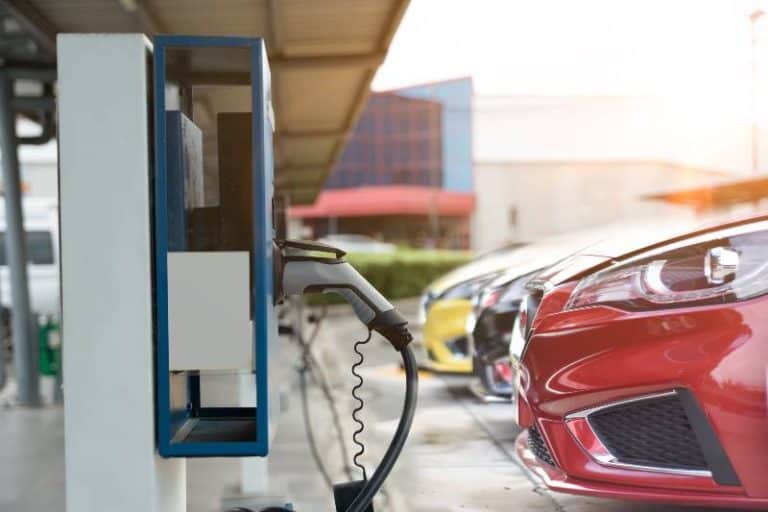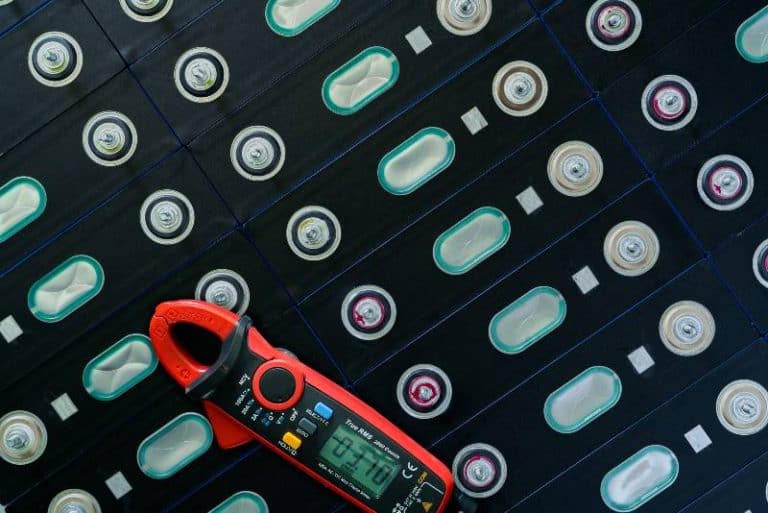Hybrid vs Plug-in vs Electric: Pros and Cons
When it comes to electric cars, there are three types: hybrids, plug-ins, and all-electric. Each type has its own set of pros and cons. In this blog post, we will discuss the pros and cons of each type of electric car. We will also help you decide which type of electric car is right for you!
Rather than a traditional internal combustion engine, all “green” cars are powered by an electric motor and battery system. The distinguishing factor between them is the method of charging their batteries: while a regular hybrid charges its battery as you drive, plug-in hybrids get energy from being plugged into an outlet; EVs have only a motor-battery combination that draws power directly from a wall socket.
Key Takeaways
- Hybrid cars are an excellent first step to reducing your carbon footprint, but if you’re looking for the most fuel-efficient option available then a plug-in hybrid or all-electric vehicle is worth considering.
- Plug-in hybrids offer regular fuel savings combined with home charging technology while electric vehicles provide no tailpipe emissions and maximum efficiency from electricity alone!
- EV ownership has many perks, including lower long-term costs and a thrilling driving experience! With reduced gasoline expenses, fewer parts that need maintenance or repair, and added storage space under the hood – you can zip through town with supercharged acceleration while enjoying whisper-quiet operation.
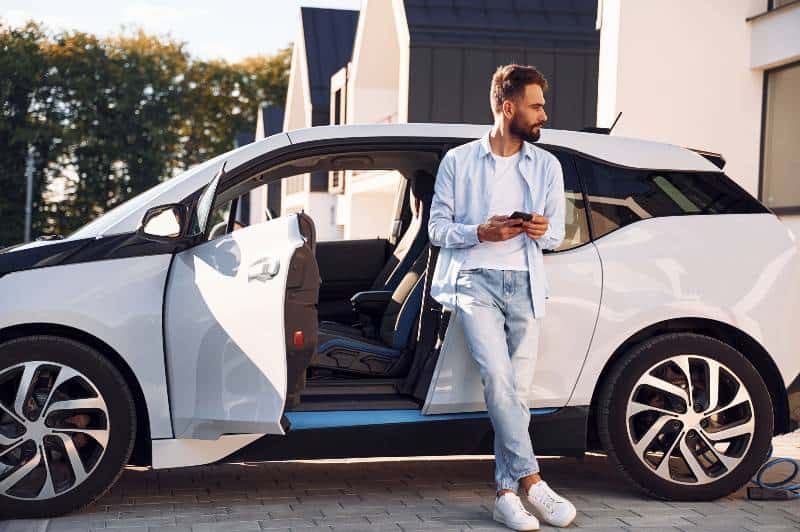
Hybrid Cars
Hybrid automobiles are the perfect combination of old-school and new-age, giving drivers access to both an internal combustion engine (ICE) and an electric motor powered by a battery. To take efficiency one step further, these cars also feature regenerative braking systems that store excess energy created when applying brakes directly into the vehicle’s battery – talk about clever!
Hybrid cars offer the environmental advantages of an electric car, with a battery-charging system that offers two distinct benefits: firstly, its engine provides power to keep energy levels high; secondly, it captures the braking force normally lost when slowing down and stores this as an extra charge.
Depending on which type of hybrid car you have, the advantages may vary. Mild hybrids offer improved fuel efficiency but they cannot be powered solely by electricity – while if your vehicle boasts full hybrid capabilities then it can be driven in both petrol and battery-powered modes!
Fuel efficiency is the name of the game when it comes to hybrids! They have larger batteries and more powerful motors, which means that at low speeds they can run solely on electric power for a limited distance – far superior fuel economy compared to conventional cars.
Drivers who seek higher fuel efficiency but do not want the trouble of plugging in at a charging station may find that hybrid vehicles are a good match for their needs. The cost of brand-new automobiles continues to climb, but hybrids remain the most cost-effective alternative fuel vehicles currently on the market.
Pros:
- Priced more affordably than other environmentally friendly automobiles
- Superiority over standard automobiles in both fuel economy and pollution levels
- There is no need to worry about the EV range.
Cons:
- At a cost that is greater than that of a regular automobile
- Still produces fossil fuel emissions
- There are no tax breaks for hybrid cars at the federal level.
Plug-In Hybrid Cars
PHEVs are the perfect hybrid for commuters looking to save money. With a larger battery pack than other hybrids, you can plug it into an outside power source and drive up to 35 miles on electricity alone. This a great way to reduce your carbon footprint while saving time and energy!
Drivers looking to boost their fuel economy can achieve the same results as a hybrid vehicle by relying solely on their car’s in-built engine and regenerative braking system. To go one step further, those willing to actively charge up via an external power source may even be able to make short journeys entirely powered by electricity.
With an electric vehicle, you don’t have to worry about being stranded. You still get the convenience of charging when it’s convenient for you and a reliable engine as your primary power source – so no matter what situation arises, you can always count on getting where you need to go.
Pros:
- Costs less in terms of fuel consumption
- A fully electric vehicle may be used for a daily commute of 20 to 35 miles.
- Might qualify for a reduction in their tax burden
Cons:
- Its price is higher than that of conventional and hybrid automobiles.
- A rapid charger that may be used at home might be expensive.
All-Electric Cars (BEVs)
With the advent of electric vehicles, drivers no longer have to decide between long-range and lower emissions – they can get both! EVs boast enviable travel distances compared to their hybrid counterparts and car makers are continuing to expand those ranges even further. Not only that but EVs offer several other advantages over PHEVs & Hybrids too.
EV owners reap the benefit of reduced long-term car ownership expenses, thanks to cheaper electricity than gas and fewer parts in need of maintenance or repair. EVs offer a thrilling ride with supercharged acceleration, whisper-quiet operation compared to gasoline cars, and added storage space under the hood–all while providing an eco-friendly environment.
There is a big difference in how the US states embrace electric vehicles. While some offer great tax credits and an abundance of charging stations, others have few (if any!) incentives or opportunities to charge your vehicle – making it important for EV owners to do their research before investing! If you’re exploring this green-friendly option, we’ve got plenty more information on EVs right here.
Pros:
- Less expensive to both charge and keep up with.
- Fast and quiet acceleration
- No tailpipe emissions
- Possible financial savings thanks to tax breaks
Cons:
- A more expensive price tag
- Compared to gas stations, there are fewer places to charge electric vehicles.
- It takes some time to fully charge.
- Temperatures that are too high can make the driving range shorter.
Comparing the Different Types of Electric Cars
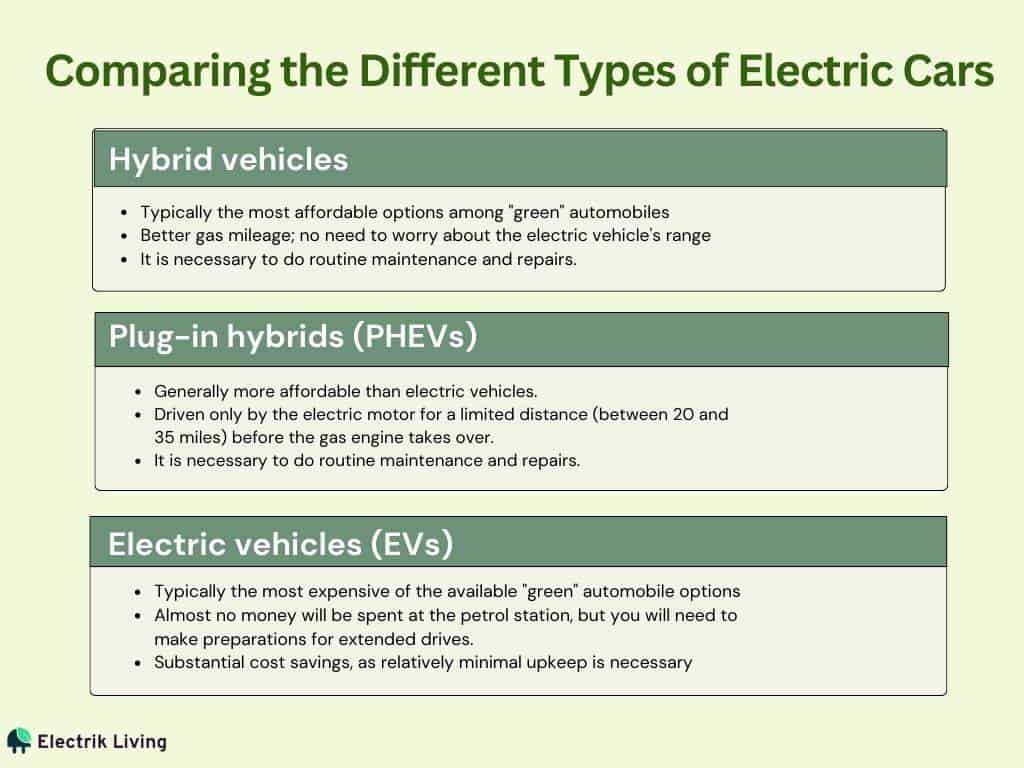
Hybrid vehicles offer the perfect solution for drivers looking to save money and reduce their environmental impact without sacrificing features — giving you a car that’s both affordable, Earth-friendly, and reliable. For those needing flexibility between electric power on shorter trips and gasoline for longer ones, plug-in hybrid cars provide the best of both worlds.
Lastly, electric vehicles should be considered by drivers who can easily access an electrical charging source– allowing them to make use of emissions-free power while they’re out experiencing life!
Hybrid vs Electric Cars FAQs
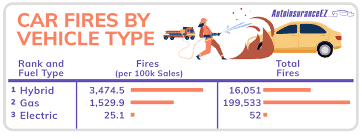
How is a plug-in hybrid different from a regular hybrid car?
The electric battery is the principal source of power for the vehicle when it is configured as a plug-in hybrid. After the charge in the battery has been depleted, the internal combustion engine will take over. The battery in a full hybrid vehicle only stores enough energy to allow the vehicle to be driven at slower speeds, such as those typical in residential neighborhoods and cities.
How does a plug-in hybrid car work?
PHEVs use batteries to power an electric motor, as well as another fuel source, like a gasoline-powered engine, to power an internal combustion engine. The ICE, an external charging device, or regenerative braking can all be used to charge Plug-in hybrid electric car batteries.
What is an all-electric car?
An electric motor, as opposed to an internal combustion engine, is included in all-electric vehicles, which are often referred to as battery electric vehicles, or BEVs for short.
How is an all-electric car different from a hybrid or plug-in hybrid car?
Electric vehicles (EVs) free drivers from the pump, harnessing energy stored in their battery rather than a gasoline tank to power an electric motor. Plug-in hybrid electric cars (PHEVs) are like two models of the vehicle rolled up into one – they feature both traditional internal combustion engines and electricity-run motors, as well as a gas tank and rechargeable battery. With this dynamic duo under its hood, PHEVs provide all the convenience you’d expect from EVs with added flexibility for longer journeys.
What are the benefits and drawbacks of each type of electric car?
Electric cars are becoming a more and more popular mode of transport, and there are several types to choose from – Hybrid cars, Plug-in Hybrid cars, and Full EVs. Each type of car offers unique benefits, but also has its drawbacks.
Hybrid cars
Pros:
- Priced more affordably than other environmentally friendly automobiles
- Superiority over standard automobiles in both fuel economy and pollution levels
- There is no need to worry about the EV range.
Cons:
- At a cost that is greater than that of a regular automobile
- Still produces fossil fuel emissions
- There are no tax breaks for hybrid cars at the federal level.
Plug-in Hybrid cars
Pros:
- Costs less in terms of fuel consumption
- A fully electric vehicle may be used for a daily commute of 20 to 35 miles.
- Might qualify for a reduction in their tax burden
Cons:
- Its price is higher than that of conventional hybrid and electric cars.
- A rapid charger that may be used at home might be expensive.
Fully electric cars
Pros:
- Less expensive to both charge and keep up with.
- Fast and quiet acceleration
- No tailpipe emissions
- Possible financial savings thanks to tax breaks
Cons:
- A more expensive price tag
- Compared to gas stations, there are fewer places to charge electric vehicles.
- It takes some time to fully charge.
- Temperatures that are too high can make the driving range shorter.
Conclusion
With the average price of a new car hovering around $36,000 and electric vehicles typically costing more upfront, it’s no wonder many people are hesitant to make the switch. But when you consider that plug-in hybrids offer regular fuel savings combined with home charging technology while electric vehicles provide no tailpipe emissions, EV ownership has many perks, including lower long-term costs and a thrilling driving experience. If you’re considering an electric vehicle for your next purchase, be sure to sign up for our newsletter where we’ll keep you updated on the latest in all things EVs.


